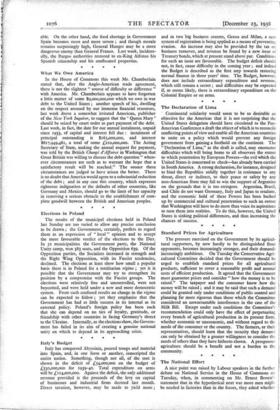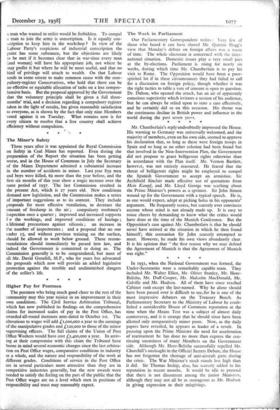A nice point was raised by Labour speakers in the
further debate on National Service in the House of Commons on Tuesday, when, in commenting on Mr. Ernest Brown'' statement that in the hypothetical next war more men might be needed in factories than in the forces, they asked whether a man who wanted to enlist would be forbidden. To compel a min to join the army is. conscription. Is it equally con- scription to keep him in the workshop ? In view of the Labour Party's suspicions of industrial conscription the point has some _substance, but the objections are likely to be met if it becomes clear that in war-time every man (and woman) will have his appropriate job, not where he may prefer it but where he will be most useful, and that no kind of privilege will attach to wealth. On that Labour tends to some extent to make common cause with the com- pulsory-register Conservatives, who hold that there can be no effective or equitable allocation of tasks on a less compre- hensive basis. But the proposal approved by the Government that the voluntary principle shall be given a full three- months' trial, and a decision regarding a compulsory register taken in the light of results, has given reasonable satisfaction to everyone, as is shown by the fact that only nine Members voted against it on Tuesday. What remains now is for every citizen to resolve that a free country shall achieve efficiency without compulsion.



































 Previous page
Previous page